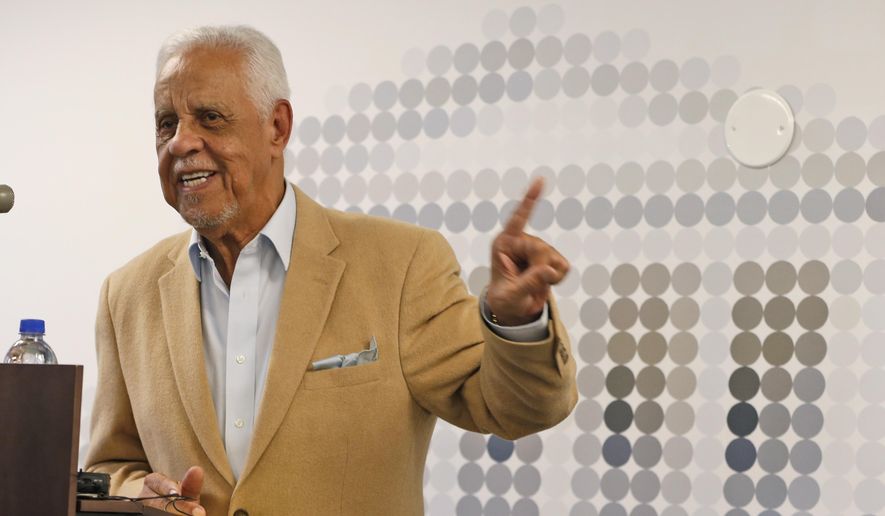Former Virginia Gov. L. Douglas Wilder said the redistricting fight in Richmond has stripped away the moral facade of the bipartisan commission once touted as a tool for fairer politics.
His blunt advice to the Democrat-led Legislature now seeking to sideline the panel: Scrap it entirely.
“It never made sense to me,” Mr. Wilder, a Democrat, told The Washington Times on Wednesday. “Strip it out of the Constitution entirely.”
Mr. Wilder’s remarks come as Democrats in Richmond advance a plan that could place a referendum on the ballot next year — one that would temporarily override the commission’s maps in favor of boundaries more favorable to their party.
The move is part of a broader national escalation in redistricting tactics, ignited when President Trump urged Texas Republicans to break precedent and adopt mid-decade congressional maps. The result: a potential five-seat gain for the GOP with the hopes of bolstering their fragile majority in the U.S. House.
California Democrats, led by Gov. Gavin Newsom, responded in kind. They’ve proposed a referendum, which is expected to pass next week, to sideline their own bipartisan commission — once a model for reform — in pursuit of maps that could deliver five seats to Democrats.
The dominoes continue to fall.
Republicans in Missouri and North Carolina have already redrawn their maps, and Indiana is expected to follow suit.
In Virginia, Democrats currently hold 6 of the state’s 11 congressional seats, and a newly proposed map could strengthen that edge. To enact the change, the legislature must initiate a multi-step process to amend the state constitution, culminating in a special election that would put the measure before voters ahead of the November 2026 elections.
The proposed map would replace the one approved by the Virginia Supreme Court in 2021, which was adopted after the state’s bipartisan redistricting commission failed to reach consensus following the 2020 census.
Mr. Wilder, 94, is a veteran of Virginia’s political trenches and no stranger to the intricacies of redistricting.
Before he made history by being elected in 1989 as the nation’s first Black governor, he broke barriers as the first Black state senator in Virginia since Reconstruction.
There, he chaired the influential Privileges and Elections Committee, playing a central role in shaping legislative maps, years before Virginia voters weighed in on the creation of a redistricting commission through a 2020 referendum, which 66% of voters approved.
“I wasn’t supportive of that change at the time,” he said of establishing the bipartisan commission.
He said the Privileges and Elections Committee, much like the bipartisan commission, was also composed of Democrats and Republicans, and handled the redrawing of districts “pretty well throughout the years.”
“So to say that you are going to allow now a bipartisan commission is saying you’re gonna capitalize what you had, rather than leave it in small letters,” he said.
Meanwhile, on Wednesday, Democrats on the House Privileges and Elections Committee pushed forward their redistricting resolution, passing it on a party-line vote.
For his part, Mr. Wilder stressed that dismantling the redistricting commission won’t be easy, noting that it’s now embedded in the state Constitution, a structural hurdle that complicates any effort to remove it.
“It’s more difficult to change the Constitution than it is to change statutory language,” he said. “But I think it was a mistake to begin with.” He added, “What is the best way to correct that mistake? That is what we are talking about now.”
• Seth McLaughlin can be reached at smclaughlin@washingtontimes.com.




Please read our comment policy before commenting.